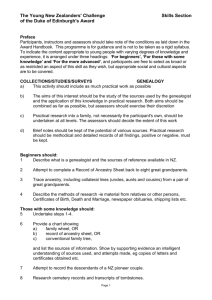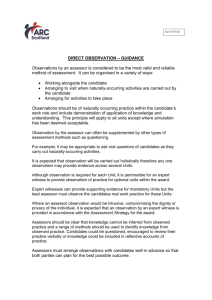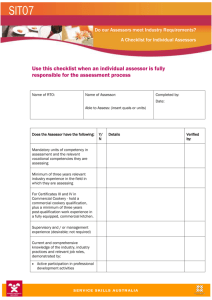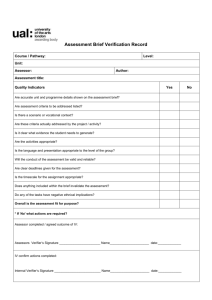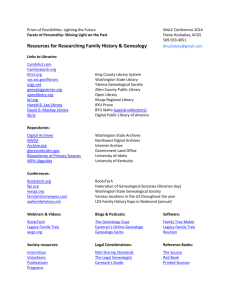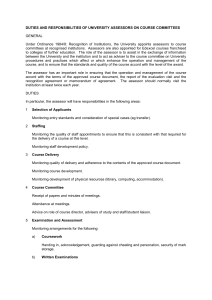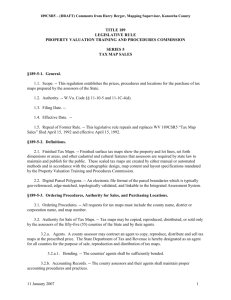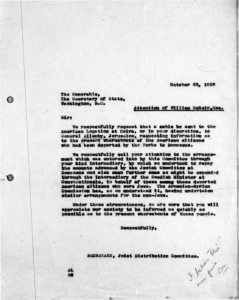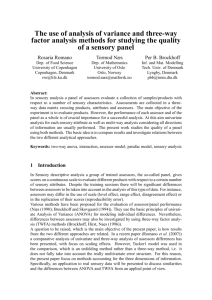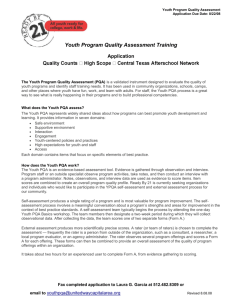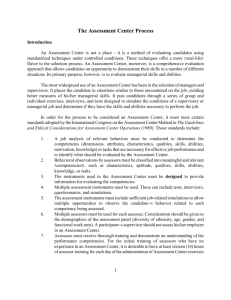collections, studies and surveys genealogy
advertisement
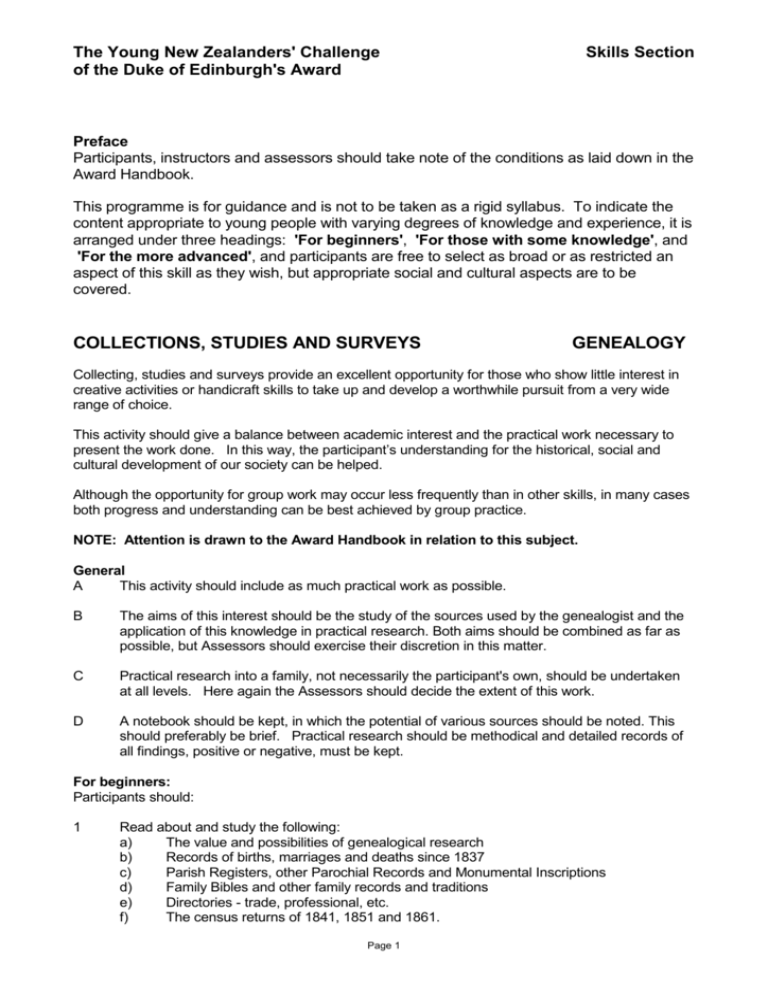
The Young New Zealanders' Challenge of the Duke of Edinburgh's Award Skills Section Preface Participants, instructors and assessors should take note of the conditions as laid down in the Award Handbook. This programme is for guidance and is not to be taken as a rigid syllabus. To indicate the content appropriate to young people with varying degrees of knowledge and experience, it is arranged under three headings: 'For beginners', 'For those with some knowledge', and 'For the more advanced', and participants are free to select as broad or as restricted an aspect of this skill as they wish, but appropriate social and cultural aspects are to be covered. COLLECTIONS, STUDIES AND SURVEYS GENEALOGY Collecting, studies and surveys provide an excellent opportunity for those who show little interest in creative activities or handicraft skills to take up and develop a worthwhile pursuit from a very wide range of choice. This activity should give a balance between academic interest and the practical work necessary to present the work done. In this way, the participant’s understanding for the historical, social and cultural development of our society can be helped. Although the opportunity for group work may occur less frequently than in other skills, in many cases both progress and understanding can be best achieved by group practice. NOTE: Attention is drawn to the Award Handbook in relation to this subject. General A This activity should include as much practical work as possible. B The aims of this interest should be the study of the sources used by the genealogist and the application of this knowledge in practical research. Both aims should be combined as far as possible, but Assessors should exercise their discretion in this matter. C Practical research into a family, not necessarily the participant's own, should be undertaken at all levels. Here again the Assessors should decide the extent of this work. D A notebook should be kept, in which the potential of various sources should be noted. This should preferably be brief. Practical research should be methodical and detailed records of all findings, positive or negative, must be kept. For beginners: Participants should: 1 Read about and study the following: a) The value and possibilities of genealogical research b) Records of births, marriages and deaths since 1837 c) Parish Registers, other Parochial Records and Monumental Inscriptions d) Family Bibles and other family records and traditions e) Directories - trade, professional, etc. f) The census returns of 1841, 1851 and 1861. Page 1 The Young New Zealanders' Challenge of the Duke of Edinburgh's Award 2 Skills Section Practical work - Young people should: a) Carry out some practical research, the amount being decided by the Assessor b) Present notebooks and other records for the Assessor's examination, and discuss any findings c) Read and draw up pedigrees in chart and narrative form, if this can be done profitably For those with some knowledge: Participants should: 3 Continue to keep notebooks and study the following: a) County and Diocesan Records and Record Societies b) The Society of Genealogists c) Heraldry and the Genealogist d) Nonconformist and other 'Non-parochial' records e) Wills and where they have been deposited 4 Practical work - Young people should continue to: a) Carry out practical research b) Present notebooks and other records for the Assessor's examination, and DISPLAY any findings For the more advanced: 5 During the stipulated period of further study, participants should read about and study the following: a) The extent and whereabouts of the principal genealogical records both in New Zealand and overseas b) Sources of information relating to specific professions, trades, callings and activities c) Printed material, its value and whereabouts d) The links between genealogy and social history e) Make a brief study of the evolution of surnames f) Methods of presenting genealogical records and findings of genealogical research 6 Practical work: a) Participants should continue their practical research supplementing their findings with relevant collections of photographs, letters, etc. b) At the end of the required period of study, participants should present their notebooks and other notes for the Assessor's examination. The total project should be discussed, as should future projects. Page 2
